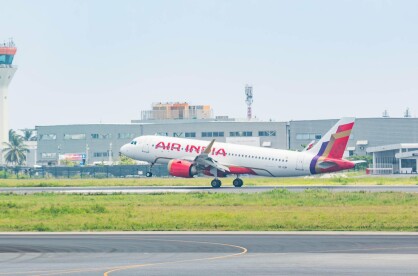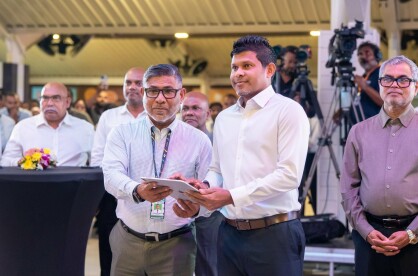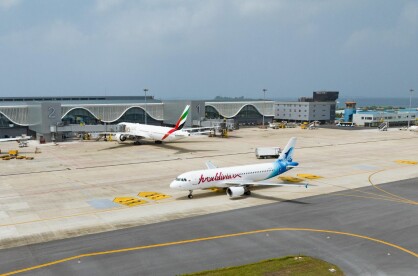Although the Maldives might now be popular as a tropical tourist destination, prior to the introduction of its tourism industry the Maldives was a destination that thrived on its fishing industry. In the Maldives, fishing is more than just a way of income. As an island nation that is surrounded by the vast blues, the fisheries sector has ensured access to food for Maldivians - even during the hardest times. With this, the Maldives has managed to create a sustainable fisheries industry through traditional line fishing, live bait fishing, beach casting or fly fishing. As these sustainable methods of fishing were embraced rather than expanding into other forms of fisheries, the country has managed to not only produce fresh and top-quality fish products that are now exported to various countries, but the sustainable fishing system has also ensured that no catch is wasted through wasteful mass fishing.
Throughout the years, Maldives has boasted its sustainable fishing sector, which continues to seek expansion through exploring the varieties that can be produced and exported to different nations. Although the fisheries sector has been seeking out more expansion tactics in order to ensure that the fisheries sector can become independently profitable, the recent draft by the Ministry of Fisheries regarding the reopening of tuna long-line fishing is not the change that was expected by the citizens of the Maldives.
On the 15th of August 2024, the Ministry of Fisheries and Oceans Resources published a public consultation on the proposed longline fishing regulation. This proposal was opened for public comments on August 5th, due to be closed for comments on the 18th of August 2024. According to the proposal drafted by the ministry, as part of the President Dr Mohamed Muizzu’s pledge to diversify the economy and maximize the benefits derived from the fishing industry, the ministry is seeking to reopen the longline fisheries in the Maldives. One of the main reasons that was outlined for seeking to reopen the longline fisheries was that the Maldivian fishing vessels constantly remained below the prescribed limits for the allocated quotas for the tuna species by the Indian Ocean Tuna Commission (IOTC).
With this, in addition to opening the regulation draft for public comments through email to [email protected], the ministry has also shared the draft with primary stakeholders, handline fishers, yellowfin tuna processors as well as various other government and enforcement agencies for their feedback. As this is not the first-time that the Maldives is exploring this avenue of fisheries, the Ministry also noted some of the regulations it will implement in order to ensure that the sustainability of the Maldives fisheries sector remains intact. These regulations include:
- Provisions to ensure the safety, security, and welfare of the vessels' crew members, require vessels to install Vessel Locating Devices and Electronic Monitoring Systems, as well as obtaining a Departure Clearance permit before setting out to the sea for each fishing trip.
- Certain areas being designated as off-limits for longline fishing, particularly to protect handline tuna fishing areas and to minimize potential conflicts with other fishing activities.
- Areas within 100 miles of the Maldives' archipelagic baseline and the area south of the 6 degrees North latitude in the entire EEZ of Maldives is also set to be prohibited for longline fishing in the Maldives.
- Provisions for the management of bycatch species such as sharks - targeted shark fishing remains prohibited, the regulation allows for non-targeted bycatch species, including sharks, caught in longline fishing to be landed and processed in specially licensed facilities, in accordance with globally accepted best practices and principles. The regulation also enforces strict measures to minimize shark bycatch through banning wire traces and shark lines, regulating line depths, and mandating the release of live sharks brought on board with minimal harm.
- Following the Code of Conduct for Responsible Fisheries of the Food and Agriculture Organization (FAO) of the United Nations and other guidelines from relevant international organizations requires sharks caught incidentally as bycatch to be processed in specially licensed facilities that comply with stringent licensing conditions, similar to other authorized fish processing plants.
While the Ministry had outlined these measures, the decision for the administration to seek to reopen longline fishing has started to cause public outrage, with over 12,000 signatures on a petition to prevent the reopning of the longline fishing. The petition which was created by the Maldives Ocean Alliance and the Yellowfin Tuna Fisheries Union highlighted some of the negative implications of longline fishing which includes:
- The possibility of overfishing, reducing the fish population - which has been prevented through the sustainable and traditional one-by-one fishing methods.
- Safety-risks and potential human rights issues such as exploitation as longline fishing requires extended periods at sea.
- Possibility of bycatch with dangerous levels of mercury being sold on the markets, which pose a great threat to the fresh and safe tuna that is now available in the Maldives markets.
- Longline fishing increases the possibility of killing a wide range of non-target species and animals, which includes sharks, turtles, manta rays - which largely contribute to the Maldives tourism industry.
- Longlines are often lost at sea - which results in the continuous killing of animals. The statistics from 2022 show that an estimated 740,000 km (about 460,000 mi) of longlines litter the ocean annually, endangering marine health and biodiversity.
- Longlining represents a de facto lifting of the longstanding shark fishing ban that has been instrumental in rebuilding the health of marine life in the Maldives.
- The potential depletion of shark, whale shark, turtle, manta ray, and seabird populations due to longline bycatch would diminish the Maldives' appeal as a tourism destination, significantly impacting the national economy.
Although these negative implications are nothing new to the Maldives fishing industry as these are the same reasons that led to the Maldives embracing a sustainable form of fisheries, it appears that things may change in the fisheries sector if the regulation is changed and passed. With only one day remaining for the deadline, those against the reopening of longline fishing in the Maldives are urging the community to sign the petition and send feedback to the Ministry of Fisheries and Oceans Resources.






